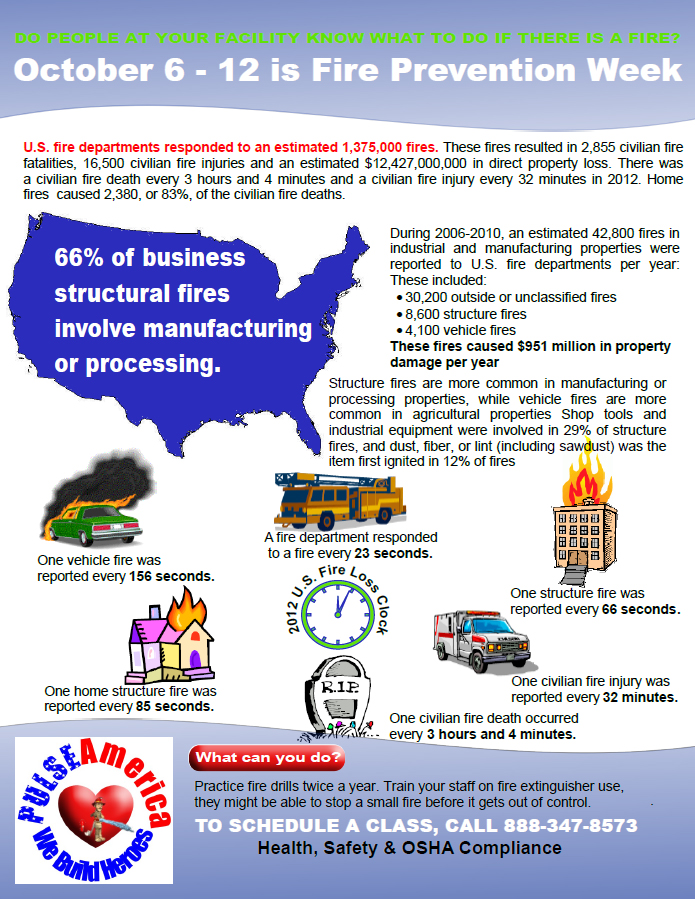Fire Prevention Week October 6th – 12th
According to the National Fire Prevention Association website, “Fire Prevention Week was established to commemorate the Great Chicago Fire, the tragic 1871 conflagration that killed more than 250 people, left 100,000 homeless, destroyed more than 17,400 structures and burned more than 2,000 acres.”
Fire, some say it’s hypnotic, fire fascinates, people are drawn to it like moths to a light bulb. Some can sit around and watch it for long periods of time. An uncontrolled fire on the other hand is what our worst nightmares are made of, our biggest fears come to life. People will stampede toward the nearest exits with little regard for the safe being of others.
You better give fire the respect it deserves. Fire lives, fire breathes, fire breeds. Fire can double in size very quickly catching the unaware by surprise.
One doesn’t have to look hard to see some fire disasters in recent history. We can look back a month ago at the fire on the boardwalk in New Jersey or a couple months ago to the fire in the sewing factory in Pakistan. Look back a little further and do find the fire in the bar Brazil and it goes on and on.
These tragedies happen when emergency exits are locked or blocked. All to often companies fill the aisle ways with boxes and other materials impeding the means of egress. These are NOT storage areas.
A major help in preventing fires is Good Housekeeping. Here are some useful tips:
- Combustible materials stored outside should be at least 6’ away from any building
- Solvent waste and oily rags must be kept in a fire resistant, covered container until removed from the site.
- Flammable/combustible liquids must be kept in approved containers, and must be stored in an approved storage cabinet.
- Good housekeeping to prevent accumulation of combustible materials is essential
- Make sure when welding is done outside a welding area that there are no combustibles within 35 feet
- Inspect all areas of you workplace on a regular basis
- Educate your staff regarding fire hazards
- Don’t overload you electric outlets
